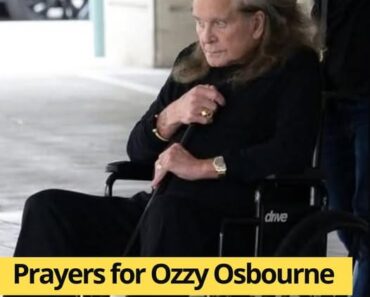
“You asked for a platform. He gave you a goodbye.” Karoline Leavitt marched onto The Late Show with a smirk, a rehearsed script, and full confidence she’d steal the spotlight. But Stephen Colbert didn’t hand her airtime. He handed her a mirror. And then, with one razor-sharp line, he didn’t just end the conversation — he ended the performance. She came seeking a headline. She left with something colder: A silence so deafening, so precise, it cut through the studio like a blade— and echoed louder than any applause ever could.
The Shocking Showdown: How Stephen Colbert Exposed Karoline Leavitt in a Late-Night TV Moment That Changed Everything
In an unforgettable moment that has left the media world reeling, Stephen Colbert took on one of the most daring and unpredictable interviews of his career. What was meant to be a routine segment on The Late Show with guest Karoline Leavitt, a rising star and outspoken conservative commentator, quickly transformed into an intense and highly charged exchange. What happened next was nothing short of shocking—Colbert dismantled Leavitt’s argument with a calculated and emotionally charged response that not only stunned the audience but also sent shockwaves through the world of late-night television.
The Lead-Up: A Routine Interview Gone Wrong
It was supposed to be just another Thursday. Colbert, known for his sharp wit and political satire, welcomed Karoline Leavitt, a former Trump press aide who had made a name for herself on Fox News as a commentator. Leavitt, only in her late 20s, had already made headlines for her fiery rhetoric and unapologetic conservative views, making her a perfect guest for Colbert’s show.
The setup was straightforward: Colbert would engage Leavitt in a political discussion, likely laced with the usual biting humor. However, Colbert, true to his long-standing belief in allowing his guests to speak freely, gave Leavitt the floor to express her views. But no one expected the conversation to take such a dramatic turn. As Leavitt launched into her critique of Colbert’s show, she wasted no time accusing him of abandoning its original purpose and transforming it into a platform for sarcasm rather than meaningful satire.
“This show used to stand for satire,” Leavitt said, looking directly at Colbert. “Now it’s just sarcasm in a suit.” The bold statement, aimed at Colbert’s political humor and approach, set the tone for what would follow. The audience, initially uncertain about the confrontation, grew silent as the tension between the two began to mount.
Colbert’s Strategy: Disarm, Don’t Dismantle
For Colbert, this wasn’t just an interview—it was an opportunity to show the audience that there’s more to him than his quick humor and impeccable delivery. He didn’t interrupt. He didn’t get defensive. Instead, he allowed Leavitt to continue her tirade for over four minutes. And that’s when the true power of Colbert’s response became clear.
When the moment finally came, Colbert leaned forward. The tone was quiet, measured. “You wanted airtime,” he said, looking her straight in the eyes. “Now you’ve got a legacy.” The room went silent. The words hung in the air, more impactful than any punchline or clever retort could have been. In that one line, Colbert didn’t just counter Leavitt’s criticisms—he exposed her for what she was: someone who had used her platform for attention, not substance.
The audience, who had been watching the back-and-forth with bated breath, realized that this wasn’t about a disagreement over politics. It was about Colbert’s ability to use timing, patience, and restraint to win the battle of wits. He wasn’t trying to “win” the conversation—he was simply exposing the hollowness of Leavitt’s claims.
The Ultimate Comeback: A Savage Callback
But Colbert wasn’t done yet. As the silence continued, Colbert delivered a devastating callback to a quote Leavitt had made earlier in the year during an appearance at the Conservative Political Action Conference (CPAC). Leavitt had complained, “Comedy used to punch up. Now it’s just flailing downward, like everything else in New York.”
In a moment of pure television mastery, Colbert recited those exact words to her, turning them back on Leavitt. “Is that all you’ve got?” he asked calmly, piercing through the bluster with surgical precision. The question wasn’t just about comedy—it was about credibility. Was Leavitt’s commentary truly meaningful, or was it just noise in a crowded media landscape?
In the final moments of the exchange, Colbert’s response left Leavitt speechless. She looked down, visibly flustered, unable to formulate a counterargument. The control room, sensing the tension, muted her mic, but Colbert didn’t back down. He let the silence linger, allowing the weight of his words to sink in.
The Fallout: What Happened Next?
The aftermath of this clash was swift and far-reaching. Within moments, clips of the confrontation flooded the internet, where it was dissected and analyzed by media outlets, commentators, and fans alike. Many viewed Colbert’s handling of the situation as nothing short of masterful. He had not only defended his show but had also exposed the emptiness of Leavitt’s rhetoric with one carefully chosen line.
However, not everyone agreed. Some critics, particularly from the conservative camp, accused Colbert of “bullying” Leavitt. They argued that he had set a trap, intentionally provoking her to create a viral moment. Others suggested that Colbert’s approach was too harsh and unnecessary, calling his response “disrespectful.”
In the midst of this debate, one thing became clear: Colbert had taken back control of the narrative. His sharp retort not only silenced Leavitt but also turned the conversation into something far more meaningful. It wasn’t about politics—it was about authenticity, about what it means to truly engage in discourse, and whether entertainment should serve as a platform for meaningful dialogue or sensationalism.
The Cultural Implications: Comedy in the Age of Disruption
This moment in late-night television is more than just a clash between two personalities. It reflects the broader cultural divide in the United States, where late-night TV has become a battleground for ideological warfare. The rise of political commentators, such as Colbert and Leavitt, has shifted late-night comedy from light-hearted jokes to pointed commentary.
As the lines between comedy, politics, and entertainment continue to blur, Colbert’s approach serves as a reminder that there is power in timing and restraint. His ability to turn Leavitt’s attack into a moment of reflection and introspection is a lesson in how to navigate the increasingly polarized landscape of American media. It’s not just about “punching up” or “punching down”—it’s about staying true to your principles and letting the message speak for itself.
The Legacy: Colbert’s Impact on Late-Night Television
What made this exchange so significant was its timing and impact. Colbert had become a staple of late-night television, known for his biting political satire and razor-sharp wit. However, with this unforgettable moment, Colbert reinforced his status as more than just a comedian. He became a figure of truth and reason in a world that often feels overrun with noise and sensationalism.
As for Karoline Leavitt, her career is now facing an uncertain future. The incident will likely be remembered as a defining moment in her trajectory, but whether it will be a stepping stone to greater things or a career-ending misstep is yet to be seen. The viral moment has put her in the spotlight, but it also exposed vulnerabilities that could impact her public image in the long term.
Conclusion: The Power of Silence
The exchange between Colbert and Leavitt was one for the history books—not just because of the sharp words exchanged, but because of the silence that followed. Colbert’s ability to use silence as a weapon, to let the weight of his words speak for themselves, is what made this moment so unforgettable. It wasn’t about winning a debate; it was about showing the audience what true intellectual engagement looks like.
In a world where everyone is vying for attention, Colbert’s masterstroke reminds us that sometimes the greatest weapon isn’t a loud rebuttal or a clever quip—it’s a well-timed pause that leaves your opponent with nothing left to say. And for Colbert, that silence may just have been the loudest statement of all.






